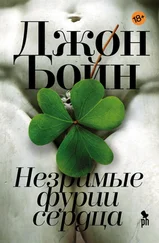‘Towards all of us,’ said Daniel, who had returned to the table now and was once again sitting in Theo’s place. He stared at me before attempting to take a deep breath and failing badly, the sound of congested lungs pouring from his mouth like a cry from a banshee.
‘Are you all right?’ asked Theo. It took only a blink of my eyes for reality to return.
‘I’m fine,’ I said, stepping away from the table carefully. ‘I just need the bathroom, that’s all. I’ll be back in a moment.’
When I returned, he was still scribbling in his notepad and I ordered some more drinks, placing them on the table, but didn’t speak until he’d finished writing.
‘You don’t have to if you don’t want to,’ he said at last, looking up at me, ‘but if you’d like to talk about your son, then I’d be happy to listen. I don’t know if you have anyone in particular who you can discuss him with.’
‘Thank you,’ I said, surprised that he was even interested in a dead child. I had expected that he’d want some information about Dash and whether I treated anyone else with such heartlessness. ‘And perhaps I will at some point. I so rarely do, you see. But not today, I think. I’d need to compose my thoughts. Tomorrow, maybe? I don’t know what you’re doing around two o’clock?’
4. The Lamb and Flag, Rose Street
‘You know, Charles Dickens used to drink here,’ I said the following afternoon as we sat in the window of the Lamb and Flag pub on Rose Street, the rain pouring down outside on another wet London day. ‘And out there,’ I added, pointing to the alleyway beyond, ‘is where the Poet Laureate John Dryden was almost beaten to death by thugs in the service of the Earl of Rochester.’
‘What had he done to deserve that?’ asked Theo, looking out on to the street as if some of the blood might still be visible on the cobblestones. He had arrived wearing a shirt and tie rather than his usual T-shirt and hoodie and looked very smart; when I asked him why such formality, he told me that he’d had a meeting that morning with his thesis adviser and liked to dress more professionally whenever they met, which I thought a rather quaint tradition. I couldn’t remember my son ever wearing a tie in his life, though, so I asked Theo to take it off, which he did without complaint, unbuttoning the top of his shirt as he did so, which set me more at ease. Daniel had always preferred open-necked shirts.
‘It’s hard to know,’ I told him with a shrug. ‘They’d been friends once, of course. Dryden dedicated one of his plays to Rochester, who had something of a hand in the writing of it, and maybe the Earl felt he didn’t get enough credit for his work. Marriage à la Mode , if memory serves. But then you know writers. They can be merciless in how they use each other to get to the top. I’m surprised more of them don’t kill each other, to be honest.’
‘You say “them”,’ said Theo with a half-smile. ‘Not “us”?’
‘All right, us,’ I replied, correcting myself. ‘I’m surprised more of us don’t kill each other. For such an artistic field, there’s an awful lot of people who desperately want to beat someone else and be seen as the very best. Succeeding on one’s own terms just isn’t enough.’
‘Whenever a friend succeeds,’ said Theo, ‘a little something in me dies. That was Truman Capote, wasn’t it?’
‘No, that was Gore,’ I said, recalling the plaintive eyes that had looked up at me from beneath the sheets in the early hours of the morning at the Swallow’s Nest, La Rondinaia, when I had stood before him and removed my robe, preparing to make my greatest conquest yet. But he had simply shaken his head, perhaps in regret that he was longer capable of playing the game, and rolled over on his side, falling back asleep. It had been disappointing, of course, and not a little humiliating, but I’d rather admired him for his resolve.
‘And you’ve heard the old proverb about ambition, haven’t you?’
He shook his head.
‘That it’s like setting a ladder to the sky. A pointless waste of energy. Anyway, where did we leave things yesterday? I was planning on telling you something about Daniel, wasn’t I?’
Something had shifted in my relationship with Theo since the previous afternoon. Although I had been using him all along and was prepared to continue with my plan until I had achieved my goal, I had begun to feel that it might be helpful to me to unburden myself of some of my regrets along the way. Perhaps it would dismiss Daniel’s ghost from shadowing me. Somehow, I felt a kindred spirit in this young naïf and I felt that he might actually understand why I had done some of the things I’d done. And that he might forgive me. But in order to do that, I needed to be honest with him. Obviously, there was only so far I could go without giving myself away entirely, but I wondered whether I could minimize some of my crimes and still command his respect.
‘Only if you want to,’ he said, notebook on the table, pen at the ready. ‘I don’t want to pry.’
‘I don’t mind,’ I replied. ‘I never have much opportunity to talk about him, despite the fact that he’s on my mind almost constantly. But before I do, I suppose I should go back a little further. To my wife.’
He flicked through his notes. ‘Edith Camberley,’ he said, nodding. ‘Actually, I read her novel a few weeks ago. Fury. It was very good.’
‘It was,’ I agreed.
‘She died quite young, didn’t she?’
‘Sadly, yes. We were living in Norwich at the time. She fell down a staircase. I’d been intending to repair the handrail since we’d moved in but, somehow, I’d never quite got around to it. Too busy working on my novel. She ended up in a coma for several months and eventually the decision was made to turn off the life support.’
‘You made that decision?’
‘I did, yes.’
‘That must have been very difficult.’
‘Of course,’ I said. ‘She was my wife.’
‘And you loved her.’
‘I wouldn’t have married her if I hadn’t loved her.’
‘She was black, wasn’t she?’ asked Theo, and I frowned, surprised by the question.
‘Is that relevant in some way?’ I asked. ‘To your thesis, I mean?’
‘Only that it must have been difficult back then. To be in a mixed-race relationship.’
‘Not especially, no,’ I said, shrugging my shoulders. ‘It wasn’t the 1950s, you know, it was the 1990s. That might seem a long time ago to someone your age but, really, it’s just the blink of an eye. And the circles we moved in would have been the least likely to hold any racist attitudes. Yes, once in a while someone might have given us a sideways glance on the street, and from time to time some uneducated prick might have made an offensive comment as we passed. But it was nothing compared to what previous generations went through.’
‘Can I ask, when her novel became such a success, did you feel any sort of… What’s the word…?’
‘Envy?’ I suggested, trying to keep the smile off my face. ‘A deep and embittered sense of resentment?’
‘I suppose.’
‘Not in the slightest,’ I said. ‘Edith was a brilliant writer. She might have been one of the greats, had she lived. I was pleased for her.’
‘Still, for a time she must have taken some of the spotlight away from you.’
‘I’ve never been much interested in that,’ I lied. ‘And, as I said, I loved her. What kind of man would it make me if I had begrudged her her success?’
He said nothing but scribbled a lot of things down in his notepad. Whenever he went to the bar, to the bathroom or outside for a smoke, he always took his notepad with him. Young Mr Field was diligent in that respect.
Читать дальше
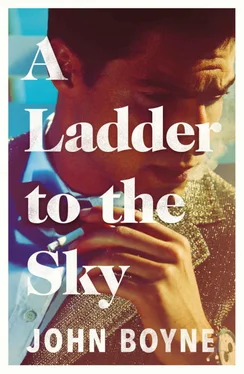
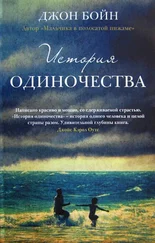
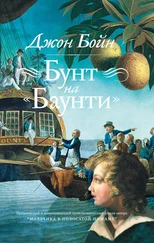
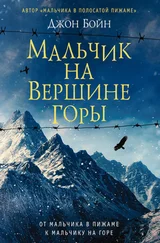
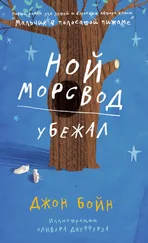
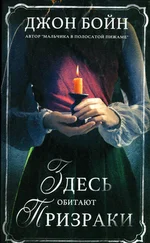
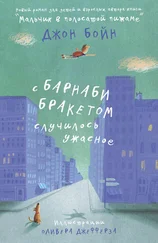
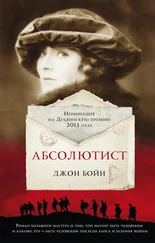
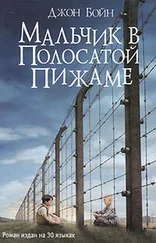
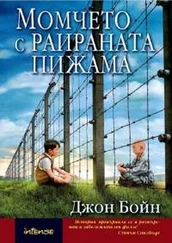

![Джон Бойн - Мальчик в полосатой пижаме [litres]](/books/420547/dzhon-bojn-malchik-v-polosatoj-pizhame-litres-thumb.webp)
